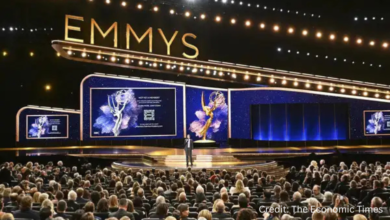Vancouver Becomes the Elemental Stage: Behind the Scenes of Netflix’s Avatar: The Last Airbender

Discover how a beloved animated series comes to life through the Vancouver Netflix Avatar filming in the heart of British Columbia. The Vancouver Netflix Avatar filming captures the essence of the original series with stunning locales.
A World Reimagined: Why Vancouver Became Netflix’s Elemental Playground
Netflix’s highly anticipated live-action adaptation of Avatar: The Last Airbender wrapped production in Vancouver. This followed an ambitious shoot that spanned several months. With filming starting in late 2021 and concluding by mid-2022, the city played a starring role as the backdrop for the elemental nations—Air, Water, Earth, and Fire. Fans of the original Nickelodeon series, which aired from 2005 to 2008, have been eager to see whether the live-action version can capture the cultural nuance and emotional resonance. This made the original so iconic.
Read more: Hollywood North
Elemental Foundations: What Made Vancouver the Ideal Filming Location?
British Columbia has long been a favorite for major Hollywood productions. Vancouver’s cinematic appeal lies in its diverse geography, seasoned film crews, and robust production infrastructure. According to the Vancouver Film Office, the region attracts over 60 productions annually due to its tax incentives, experienced workforce, and access to nature. This can stand in for nearly any fictional world. It is no wonder that the Vancouver Netflix Avatar filming made the most of these advantages.
For Avatar: The Last Airbender, this meant snow-capped mountains for the Northern Water Tribe, coastal landscapes for Earth Kingdom territories, and urban studio facilities to build the Fire Nation’s industrial aesthetic. The production used StageCraft LED Volume technology (popularized by The Mandalorian) to create immersive digital environments. This brought fantastical realms to life with unprecedented realism.
A Cast and Crew Rooted in Representation and Respect
This adaptation—helmed by showrunner Albert Kim—makes a conscious departure from Hollywood’s history of whitewashing. This follows backlash from the 2010 film version. Filipino-Canadian actor Gordon Cormier plays Aang, the show’s titular Avatar, accompanied by a culturally aligned cast including Kiawentiio (Katara), Ian Ousley (Sokka), and Dallas Liu (Zuko).
Cultural consultants were reportedly involved throughout the production process to ensure accurate portrayals of East Asian, Inuit, and Indigenous influences. As Kim noted in a blog post on Netflix’s official newsroom, the aim was to stay true to the original’s spirit. Meanwhile, he wanted to expand its emotional scope for a new generation. In this way, the Vancouver Netflix Avatar filming aimed to honor the series’ authenticity.
Read next: Representation in Media: Why It Matters More Than Ever
Anticipation, Impact, and What Comes Next
Netflix’s investment in this series—rumored to be among its most expensive yet—signals confidence in Avatar’s enduring popularity. The show’s release, expected in late 2025, comes at a time when fantasy storytelling is seeing a renaissance. This is driven by fandoms craving authenticity and depth.
For Vancouver, the production adds to the city’s growing reputation not just as a filming location, but as a collaborator in storytelling. Local economies have seen boosts from cast and crew accommodations. The international spotlight has shone on Canadian talent and scenery, thanks to efforts like the Vancouver Netflix Avatar filming.
On social media, reactions have ranged from cautious optimism to excitement. Fan forums on Reddit and X (formerly Twitter) reflect hope that the live-action version will “get it right this time.” This entails honoring the legacy of a story about balance, belonging, and identity.
Why This Story Matters
Avatar: The Last Airbender is more than entertainment—it’s a cultural touchstone. Its themes of resilience, justice, and connection are as relevant today as they were two decades ago. And now, Vancouver gets to be part of that legacy.
As the premiere draws near, this project highlights how storytelling—when rooted in respect and vision—can bridge cultures and generations. It’s not just about bending the elements. It’s also about shaping the future of representation in media.
Read More:
- Experience Vancouver’s Rising Film Scene
- Mike Flanagan’s Carrie: A Bold Reimagining of Stephen King’s Classic for Amazon Prime




